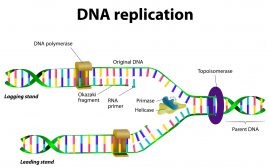Definition
noun, plural: glycosidases
(biochemistry) An enzyme catalyzing the hydrolysis of a glycoside
Supplement
Glycosidases are enzymes that assist in the hydrolysis of glycosides. They are capable of cleaving the glycosidic bonds such as those in cellulose and hemicellulose.
An example of glycosidases is the lysozyme. Lysozymes are capable of destroying the baceterial cell walls, particularly the gram-positive bacteria. Bacterial cell wall is made up of peptidoglycan of N-acetylmuramic acid and N-acetylglycosamine linked by glycosidic bonds. A damaged cell wall of bacteria makes them lose their cell shape and rigidity. They become vulnerable to the adverse effects of turgor pressure caused by high concentration of proteins and molecules inside the cell relative to the external environment. Apart from the anti-bacterial activity, glycosidases are also involved in other natural metabolic activities, such as trimming mannosidases in N-linked glycoprotein biosynthesis. In prokaryotes, particularly E. coli, glycosidases are involved in the regulation of the lac operon. In most eukaryotes, glycosidases are located inside the endoplasmic reticulum, Golgi apparatus, and lysosomes. They also occur in the intestinal tract and in saliva wherein they act on lactose, starch, sucrose, trehalose, etc.
Other examples of glycosidases are lactase, O-GlcNAcase, amylase, hyaluronidase, sucrose, and maltase.
Synonym(s):
- glycoside hydrolase
- glycosyl hydrolase
See also:






